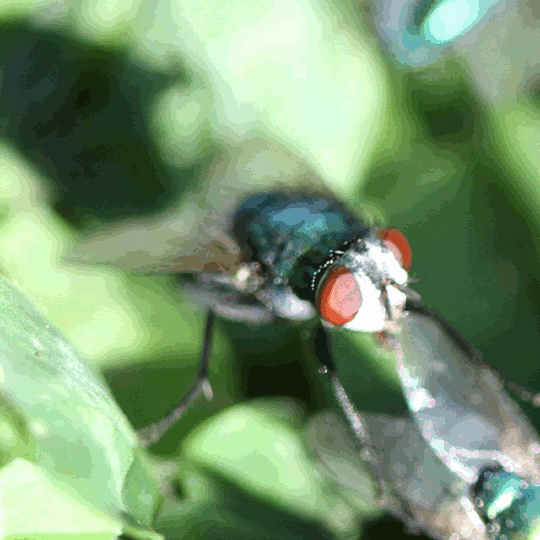#brachycera
Explore tagged Tumblr posts
Text

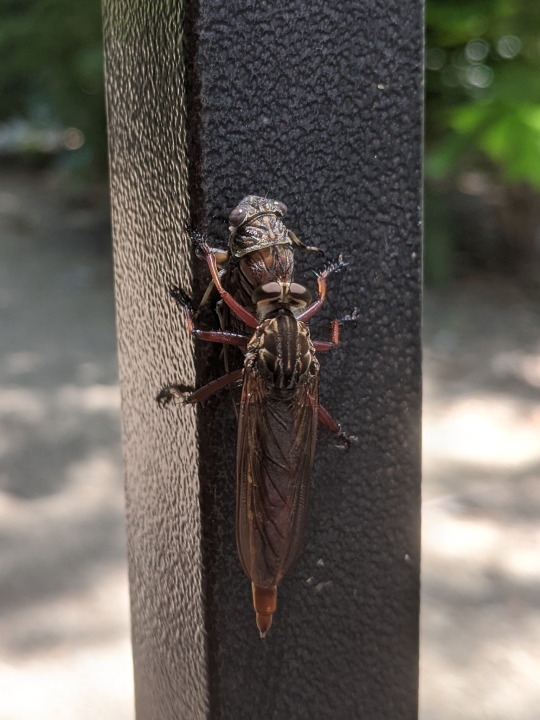
Very large robber fly attacking a cicada. I took this photo years ago, and for some reason I just forgot about it. I don't know how considering how interesting it is.
17/11/20 - QLD:WET coastal rainforest nursery Predator - Diptera: Dolopus sp. Prey - Hemiptera: Cicadoidea sp.
#Diptera#unidentified#Cicadoidea#Cicadas#Hemiptera#Auchenorrhyncha#True Hoppers#Dolopus#Asilidae#Robber Flies#Brachycera#Brachyceran Flies#flies#arthropods#arthropoda#invertblr#invertebrates#bugs#bugblr#bugs tw#bug#insects#insecta#insectblr#insects tw#entomology#insect
179 notes
·
View notes
Text

#Vulpes vulpes#Vupini#Canidae#Canivora#Chordata#Brachycera#Formicidae#Diptera#Animalia#Hymenoptera#Hexapoda#Gif#meat#death
3 notes
·
View notes
Text
So cute!!! I love their little mouth. What a whacky little creature
Meet microdon fulgens, the rainbow ant fly! This large gorgeous beastie is a (harmless) nectar feeder as an adult, and tricks ants into raising their larvae as their own. I had not heard of this life cycle in flies before, so this was cool to find and learn. Plus, *gestures at fly* 💚💚
5/27/23. N. FL
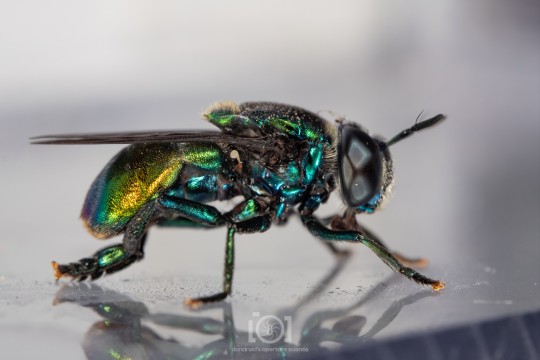

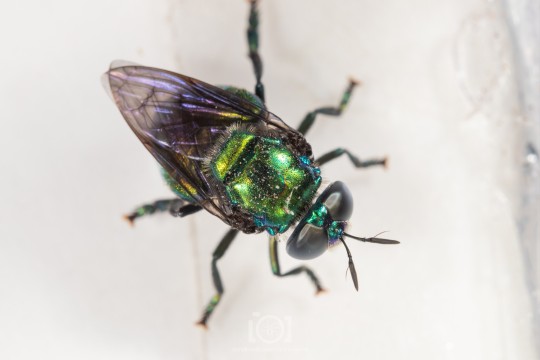

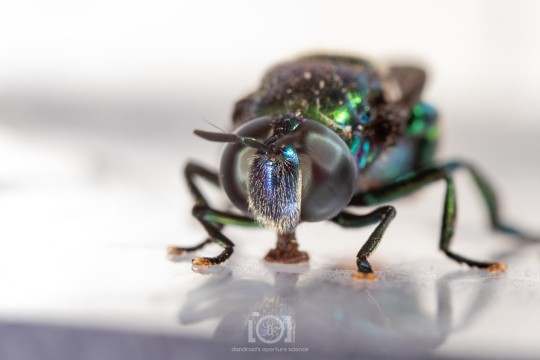
791 notes
·
View notes
Text
Asking because I have met multiple people who don’t think mosquitoes count as flies. Weirdly these folks tend to NOT have a background in entomology but DO fairly consistently consider something a fly or not based on whether they’re in the suborder brachycera despite not knowing what brachycera is. (For example if I ask follow up questions like are midges/flower flies/crane flies/deer flies etc. are flies)
330 notes
·
View notes
Text
Fun Fact!!!
Utricularia Sandersonii is native to South Africa and sometimes confused for Utricularia Brachyceras!!!


0 notes
Text
[Etymozoo] Un sous-ordre de diptères aux antennes particulièrement rabougries
See on Scoop.it - EntomoScience

Brachycera - Wikipédia
Un article de Wikipédia, l'encyclopédie libre. Les brachycères, Brachycera, forment un sous-ordre d' insectes diptères qui comprend les mouches muscoïdes aux antennes courtes (du grec brachy signifiant "court" et ceros "corne"). Les antennes sont formées de trois articles ; le dernier article porte une longue soie, nommée arista, ou bien un style plurisegmenté.
Les brachycères, Brachycera, forment un sous-ordre d'insectes diptères qui comprend les mouches muscoïdes aux antennes courtes (du grec brachy signifiant "court" et ceros "corne"). Les antennes sont formées de trois articles ; le dernier article porte une longue soie, nommée arista, ou bien un style plurisegmenté.
Wikipédia,, version du 9 avril 2023 à 23:29.
------
via Taupo sur X, 17.06.2021
"#Etymozoo : Brachycère, du grec brakhús (court) et kéras (cornes, antennes) : groupe de diptères (mouches, moustiques) dont les antennes sont particulièrement rabougries."
https://x.com/pierrekerner/status/1405465250099613703
0 notes
Text
In the lush landscapes of Pennsylvania, an unassuming plant harbors a remarkable secret. The Losh Run Box Huckleberry, known scientifically as Gaylussacia brachycera, is not just any ordinary flora. This extraordinary organism is one of the oldest living entities on our planet, estimated to be around 13,000 years old. Its longevity tells a story of…
#ancientOrganisms#botany#clonalColonies#ecologicalResilience#environmentalAwareness#EnvironmentalConservation#GaylussaciaBrachycera#habitatLoss#humanImpactOnNature#LoshRun#BoxHuckleberry#naturalHeritage#Pennsylvania#naturalWonders#rhizomePropagation#threatenedSpecies#frnwh
1 note
·
View note
Photo
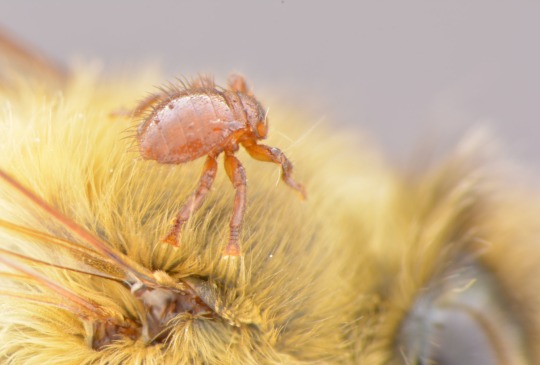
Bee louse (Braula coeca)
Photo by Miles Zhang
#bee louse#braula coeca#braula#braulidae#carnoidea#acalyptratae#schizophora#cyclorrhapha#eremoneura#muscomorpha#brachycera#diptera#antliophora#panorpida#endopterygota#eumetabola#neoptera#insecta#hexapoda#arthropoda#pancrustacea#panarthropoda#ecdysozoa
41 notes
·
View notes
Photo
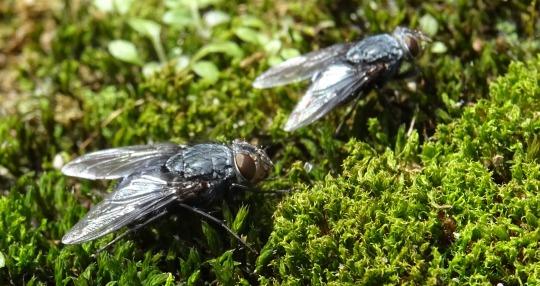
Frau #Brachycera und Gemahl haben das schöne #Wetter ☀️ für einen Ausflug genutzt und nehmen ein Sonnenbad im weichen #Moos 💚
3 notes
·
View notes
Text
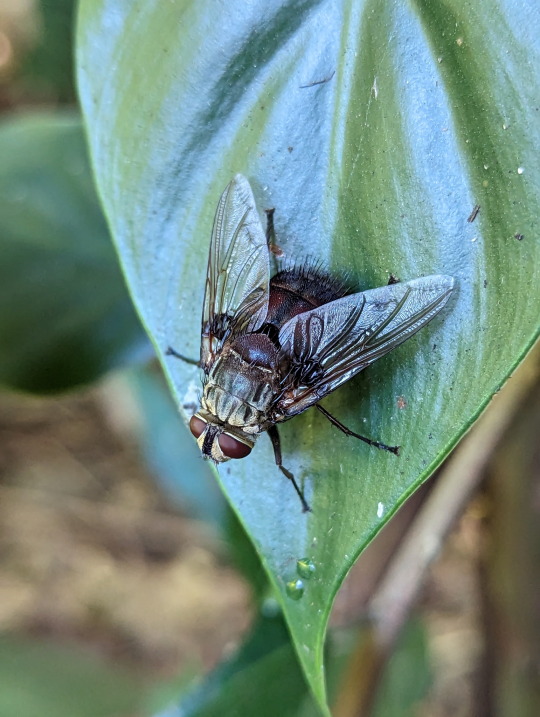
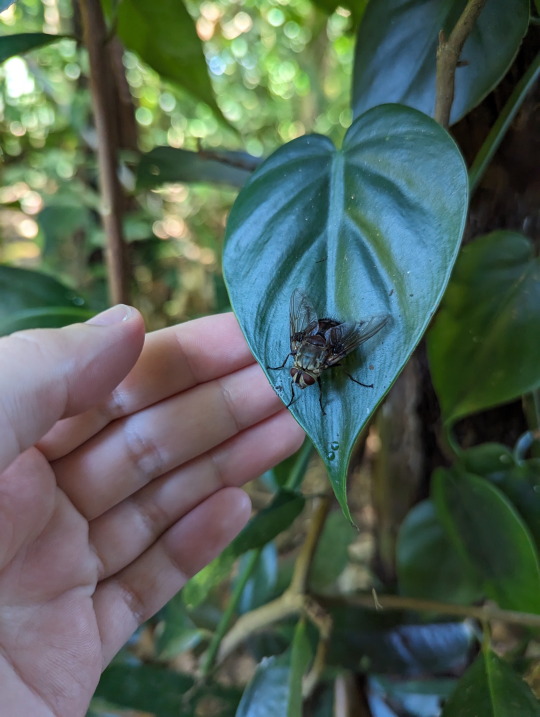

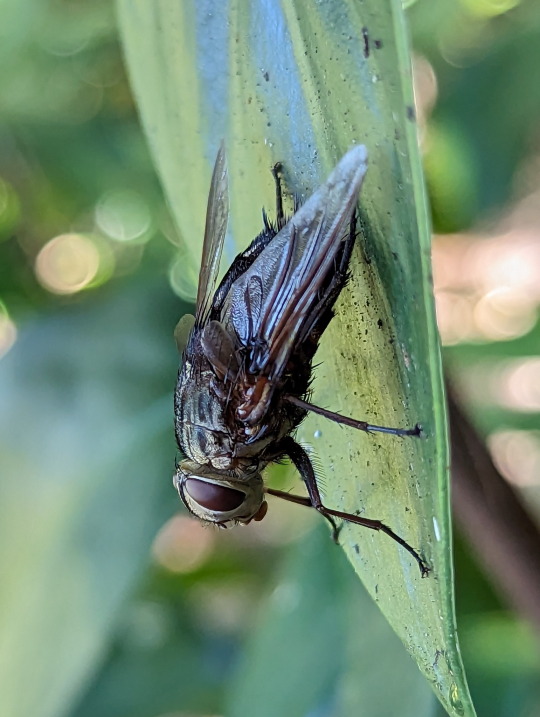
Absolutely gigantic Rutilia fly spotted in the rainforest.
04/12/23 - Rutilia sp.
QLD:WET - Rainforest nursery
#invertblr#invertebrates#Arthropoda#Arthropods#bugblr#bugs#bug#bugs tw#insects#insectblr#insecta#insect#insects tw#entomology#Rutilia#unidentified#Diptera#Flies#Tachinidae#Bristle Flies#Oestroidea#Brachycera#Brachyceran Flies
63 notes
·
View notes
Text

3 notes
·
View notes
Text
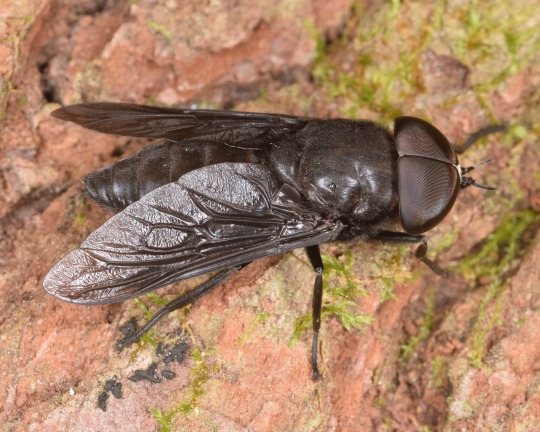
#Tabanus atratus#black horsefly#horsefly#insect#fly#animal#wildlife#nature#creative commons#tabanidae#brachycera#diptera#neoptera#pterygota#insecta#arthropoda#USA
18 notes
·
View notes
Text

0 notes
Video
Snail-Killer Fly by Roman Chukanov Via Flickr: Marsh flies of the Sciomyzidae family are sometimes referred to as "snail-killing flies" because their larvae prey on snails and slugs.
5 notes
·
View notes
Photo
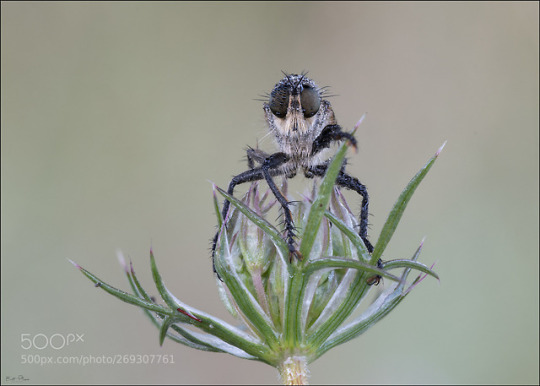
robber fly (Machimus rusticus) by ernstpluess https://ift.tt/2Oqp3df
#Insekten (insecta)#Insects#Schlichte Raubfliege#Raubfliege#Zweiflügler#Diptera#Fliegen#Brachycera#Ja
15 notes
·
View notes
